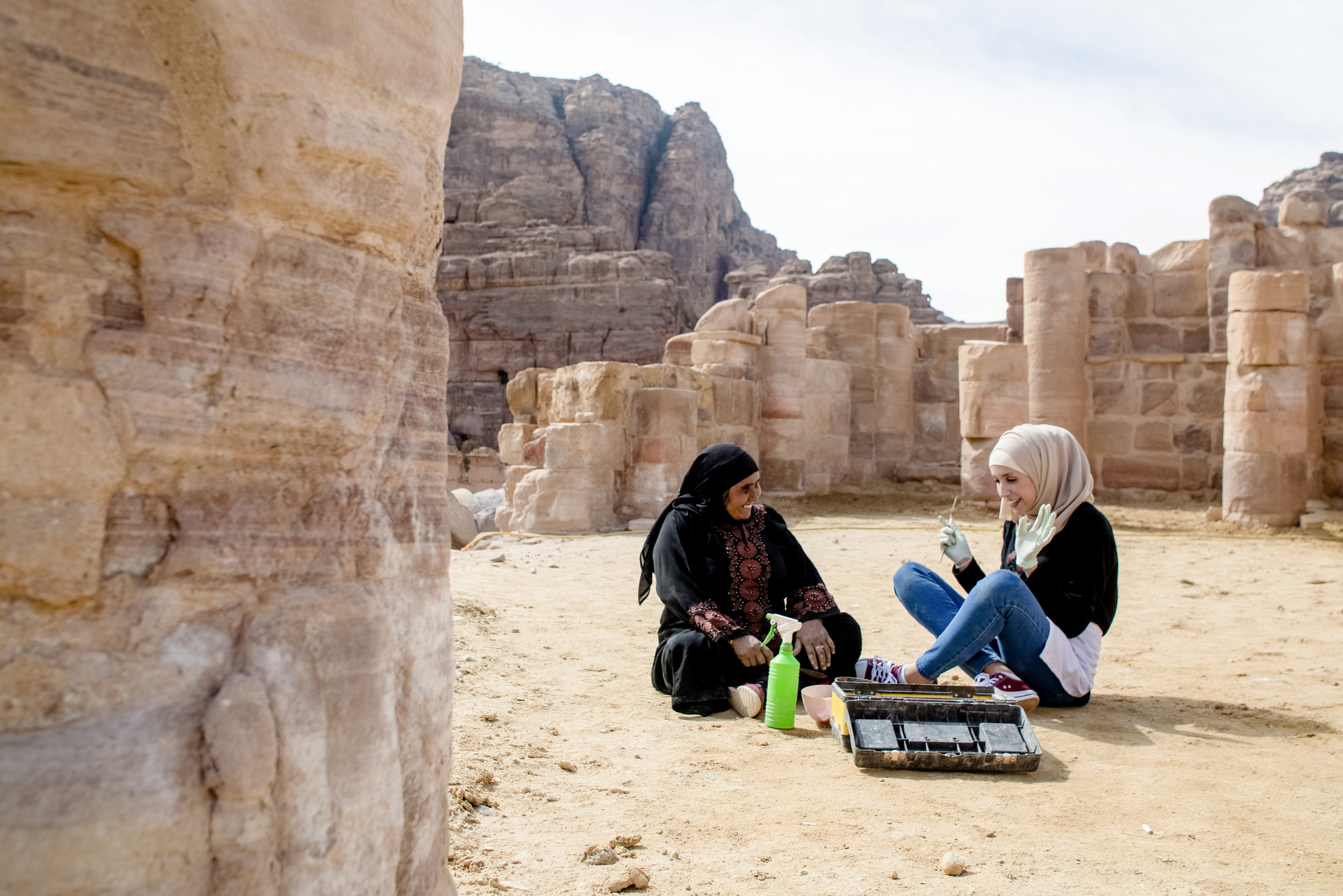ICOMOS Policy Guidance for Heritage and Development Actors now available in Arabic

The Arabic translation of the ICOMOS document Heritage and the Sustainable Development Goals: Policy Guidance for Heritage and Development Actors was officially launched on 2 September 2023 at the Sustainable Development Goals Working Group (SDGWG) Annual General Meeting, during ICOMOS’ Triennial General Assembly in Sydney, Australia.
The Arabic version was an initiative of the Sustainable Development Goals Working Group (SDGWG) of the Arab region to highlight the advocacy of ICOMOS that heritage is a driver and enabler of the achievement of all the SDGs beyond Target 11.4, “Strengthen efforts to protect and safeguard the world’s cultural and natural heritage”.
At ICOMOS, we strongly believe that heritage can play a key role in achieving the SDGs, but more work is needed to understand and address the potential and challenges that link heritage to each of the 17 Goals. The Policy Guidance document is the first step in mending this gap by:
– raising awareness of the potential contribution of heritage practices to sustainable development
– providing guidance to ICOMOS members and heritage professionals in adopting a sustainable development perspective in their heritage practices and aligning them to the SDGs.
The work of ICOMOS has been founded, from the outset, on a principle closely aligned with sustainability: the common responsibility to safeguard the heritage of humanity for future generations. In the past decade, ICOMOS has increased its focus on heritage within the context of sustainable development, issuing documents such as the “Paris Declaration on Heritage as a Driver of Development” (2011); the “ICOMOS Action Plan on Cultural Heritage and Localizing the SDGs” (2017); the “Concept Note on Cultural Heritage, the UN SDGs and the New Urban Agenda” (2019) and the report “The Future of Our Pasts: Engaging Cultural Heritage in Climate Action” (2019). The ICOMOS Policy Guidance for Heritage and Development Actors is the latest ICOMOS document to demonstrate the potential of harnessing heritage in achieving sustainable development, and its translation into Arabic makes it accessible to all Arabic-speaking countries and communities.
The translation of the Policy Guidance was an initiative to build and strengthen cooperation in the Arab region with a team of representatives from different Arab countries within the SDG Working Group (SDGWG). It was supported by HRH Princess Dana Firas, president of ICOMOS Jordan. This team constituted of:
· Bayan El Faouri, Team Coordinator (Jordan)
· Prof. Tarik Nazel (Egypt)
· Prof. Khalid El Harrouni (Morocco)
· Dr Eman Assi (U.A.E.)
· Dr Naima Benkari (Oman)
· Nayla Hamad Al-Khalifa (Bahrain)
Bayan El Faouri and the translation team believe that translating this important ICOMOS document in Arabic promotes multilingualism, fosters social cohesion and intercultural communication and contributes to positive and sustainable democratic societies.
Dr Naima Benkari believes that this translation is a crucial step towards comprehensive policies that bring cultures together for the recognition, preservation, and development of cultural heritage across the globe.
Dr Eman Assi states that translating this document will result in a more balanced representation of experts from all five global regions in cultural heritage conservation, creating a comprehensive skillset for sustainable development.
Prof. Tarek Nazel believes that the Arabic translation of the SDG Policy Guidance will break language barriers and enable people and institutions from diverse cultural and environmental backgrounds to communicate and exchange views on heritage, development and the SDGs.
Prof. Khalid El Harrouni states that this translation is a significant initiative. This endeavour empowers individuals and institutions and fosters cooperation among various cultural and environmental contexts.
All the Arabic translation team members agree that translation is an utmost necessity for more inclusive and culturesensitive policies and assures their better understanding and implementation on the ground. Translations to other languages are being planned by the SDGWG, and it hopes to spread the important message of the holistic role of heritage to support the great ambition of the SDGs. For interested parties who would like to translate the document to their own languages, please get in touch with Ona Vileikis, ona.vileikis@gmail.com,
SDGWG Task Team Coordinator for Communications.